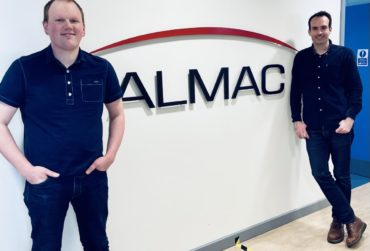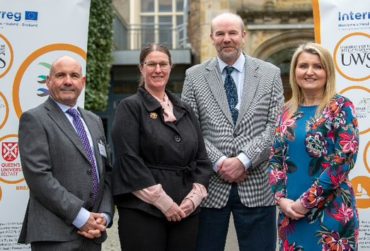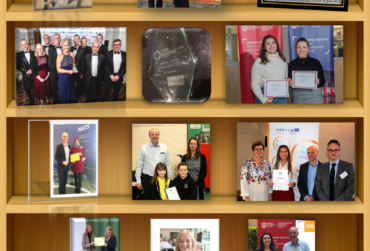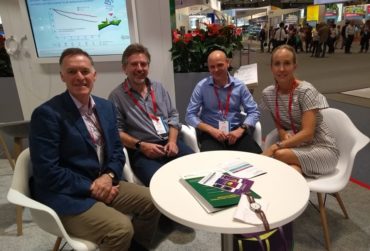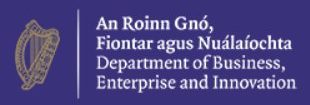Almac Discovery is a biotech company based in the Precision Medicine Centre at Queen’s University Belfast and is supported by the Almac Group of companies. The Discovery team has a track record of delivering successful clinical programmes and overcoming significant hurdles inherent in drug discovery. Consequentially, Almac Discovery has made fundamental contributions to the development and advancement of new medicines that address unmet medical needs across a range of therapeutic indications.
A primary focus of Almac Discovery is targeting the Deubiquitinating enzyme class (DUBs). DUBs are proteases that catalyse the de-ubiquitination of protein substrates and as such offer an alternative way to regulate protein homeostasis by affecting protein stability, signalling, and trafficking. Almac Discovery have developed a purpose-built drug discovery platform (UbiPlex™) for the identification and optimisation of DUB inhibitors.
In 2020, Almac Discovery partnered with the BREATH consortium to focus on identifying roles for DUBs in airway disease using a CRISPR-based screening approach. This research is being led by Dr. Richard Wilkinson (BREATH Research Fellow) and Dr. Ian Lobb (Genome Editing Technical Leader). Both Dr. Wilkinson (pictured left) and Dr. Lobb (pictured right) have an extensive background in molecular biology and have utilised established and novel genome editing technologies to explore biological pathways underpinning a variety of disease types.
As part of the BREATH-Almac Discovery programme, two projects are currently underway:
- Primary cell ALI cultures with DUB KO: Loss of Cl– secretion with CFTR mutation/inactivation alongside continued/enhanced epithelial sodium channel (ENaC) activity can lead to decreased airway surface hydration and to chronic pathological features in chronic obstructive pulmonary disorder, cystic fibrosis and chronic bronchitis. Attempts to target ENaC in the past have been unsuccessful. ENaC has however previously been shown to be ubiquitinated. In collaboration with Prof. Lorraine Martin and Dr. James Reihill at Queen’s University Belfast, we are exploring if DUB knock-out affects ENaC, CFTR, or TMEM16A ion channel activity in primary cell air-liquid interface cultures.
- BKα and LINGO-1: Calcium-activated potassium channel BKα (KCNMA1) plays a role in promoting airway hydration. Previous research revealed that BKα co-localised with and is inactivated by LINGO-1. In collaboration with Profs. Mark Hollywood, Keith Thornbury and Gerard Sergeant at Dundalk Institute of Technology, we are investigating if DUBs play a role in modulating LINGO-1 mediated inactivation of BKα.
By screening DUBs in these two projects, the BREATH-Almac partnership aims to accomplish two goals. Firstly, to provide insight and understanding into the biological mechanisms underpinning aspects of airway disease. Secondly, to identify targets for the development of novel small molecule inhibitors via the Almac Discovery UbiPlex™ platform. Compounds developed towards DUBs of interest may provide powerful new tools for further research or potentially hold therapeutic utility as novel treatments in airway disease.
Back to Latest News
